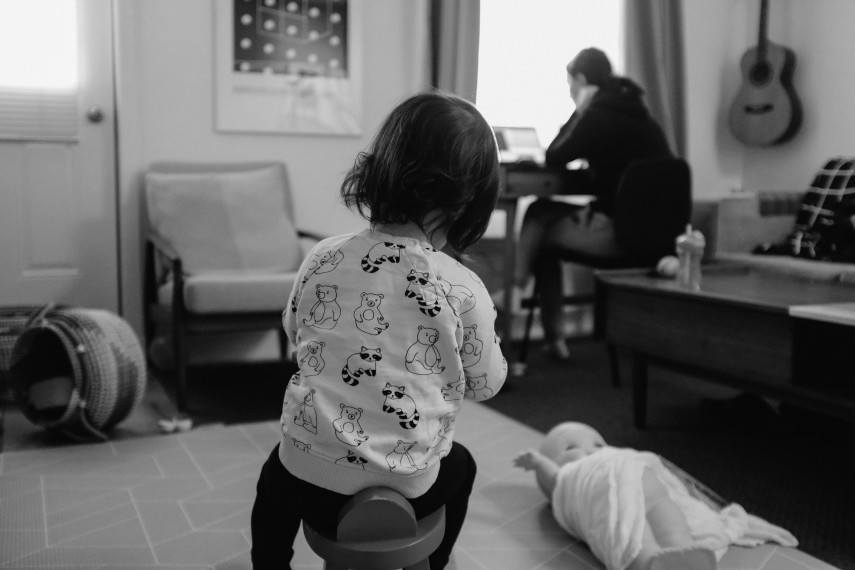Mental Health Top Tips for Parents and Children from the Department of Psychology, in Support of Bell Let's Talk Day

Being a parent has never been easy – the age of COVID-19 has magnified that struggle tenfold. Juggling being a daycare provider, teacher, IT technician for online learning, all while trying to navigate working from home, has left many parents feeling overwhelmed, exhausted and frustrated (on occasion). The pandemic has placed a mental health strain on both children and their guardians. In support of Bell Let's Talk day, experts from the Department of Psychology at the University of Guelph have provided some of their mental health top tips for parents and children.
Tip #1 - Practice self-compassion
Parenting during the pandemic is exceptionally hard. Parents are encouraged to practice self-compassion. It may be helpful to remind yourself that it is understandable to feel overwhelmed, exhausted, frustrated…Remember, we are all doing the very best we can during exceptionally difficult times. Everyone is being asked to do impossible things. Be kind to yourself, always.
Tip #2 - Create a schedule with your children
With the world in a state of uncertainty and change, opportunities to create structure and routine for children become even more important. When children feel like life is unpredictable, they are apt to seek out control in other ways. This can present in many ways, such as acting out or becoming more rigid. Creating a schedule with your child that includes family time or special activities to look forward to, can help build positive family connections and create enjoyable moments that make it easier to manage challenging times, for both parents and children.
Tip #3 - Manage expectations
There’s no question that learning and working from home creates unique challenges for the entire family. It is common to experience greater difficulty staying motivated and engaged in school and work. Parents are encouraged to manage and lower expectations for productivity for themselves and for their children. 
Tip #4 - Remember what matters most
Your relationship with your child matters more than how much schoolwork they got done on any given day. The pandemic will end, they will go back to school, but your relationship is forever.
Tip #5 - Look beyond the behaviour
Children can’t always explain how they are feeling – sometimes they show it with their behavior. Look for the feelings under the behaviour, and help your child talk about them.
Tip #6 - Empathize with your children
When your child is worried, let them know you understand how they are feeling. Tell them it makes sense that they are anxious, bored, or angry, before reassuring them that things will get better.
Tip #7 - Build safety and trust
Acknowledging that your child has good reasons for feeling sad (or anxious, or bored, or angry) can help your child feel that, as a parent, you understand them and are able to support them, which in turn will give them a greater sense of safety and trust.
Tip #8 - Families that play together...
If you think your child is spending too much time online, substitute a social activity – play a game, go for a walk together, bake cookies, do your nails, build a project, do a puzzle…
Tip #9 - Encourage connections
Staying safe during the pandemic does not mean cutting off social connections. Teens, in particular, are highly social people. Parents might encourage their children to maintain connections with peers through activities like online game nights, watching movies together via apps, video calls, or even simple phone calls. Being flexible about when youth connect with their peers may also help them to make those important connections happen.
Tip #10 - Be honest
Let your child know you miss regular life too.